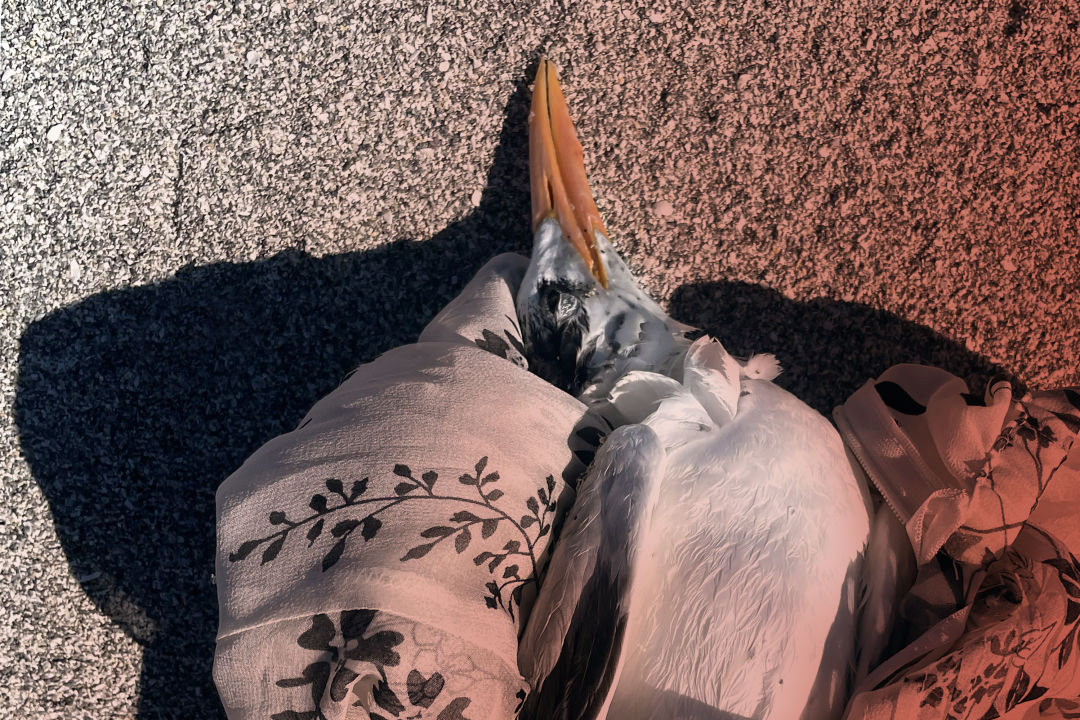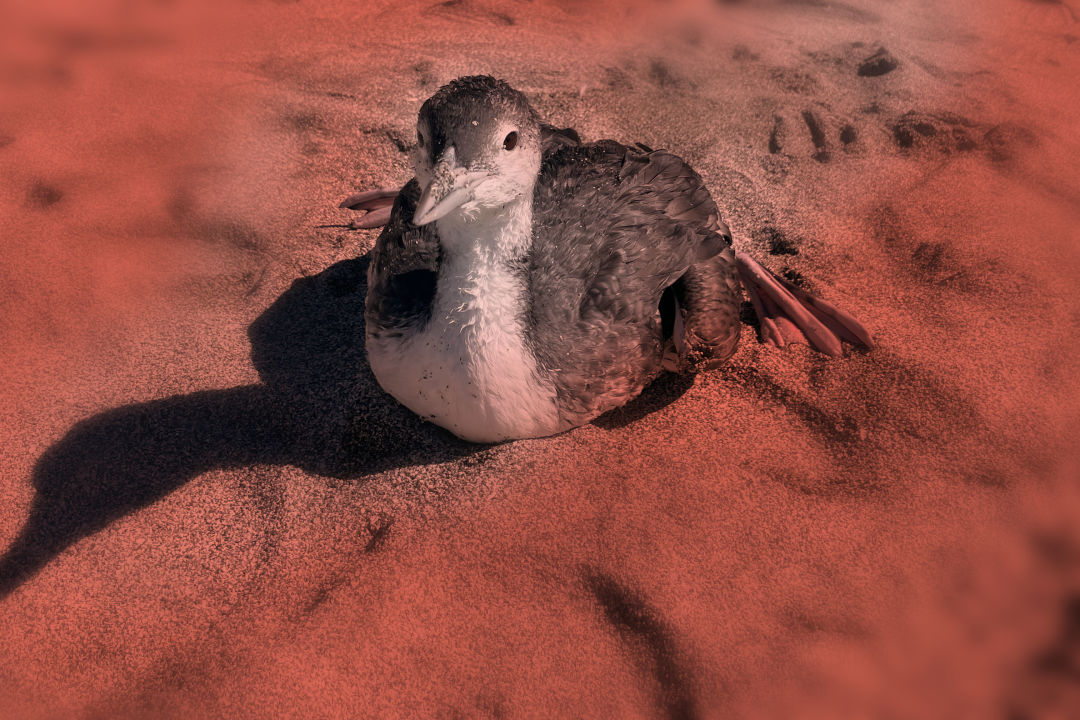Sick Birds Are Washing Up on Our Beaches

A sick royal tern on its way to Save Our Seabirds.
Image: Courtesy of Brooke Bennett
On a short walk on Turtle Beach this past week, Brooke Bennett happened upon a struggling common loon washed up on the shore. She tried to help it, but the bird wouldn't let it near her. When Bennett went to look for help, she stumbled upon another loon, this one dead. A short while later, she found a royal tern at the water's break lying on its back. She wrapped the bird in a towel and called the local animal rescue organization Save Our Seabirds to ask what to do. By the time she walked back to the first loon, it was dead.
“It felt like everything was dying around me,” Bennett says.
She drove the tern from Turtle Beach all the way to Save Our Seabirds on City Island. She wondered if something was wrong, not just with the birds, but with the health of Sarasota’s waters overall.
Aaron Virgin, the chief executive officer of Save Our Seabirds, says this week has been a typical one for local birds.
“This time of year is a little bit quiet, because we don’t have baby birds coming in,” he says. But was it normal to find two dead loons washed up on the beach so close to each other? Virgin says that, so far this season, eight loons have come through his organization and he has heard of another three or four that were found on the beach. Last year, Save Our Seabirds was delivered 21 common loons, and 19 of them died. “We can’t say it’s a high mortality rate yet this year," Virgin says, "but it’s kind of trending in that direction.”
Bennett assumed the cause must be red tide. But Virgin says that is unclear.
“Loons are at the very southern end of their wintering range here," he says. "They’ve come all the way down from Canada, so they’re pretty stressed out already. The loons lose lots of weight from the migration. And then they have to switch from freshwater to salt, different prey, different temperatures—if they don’t find prey quickly, it can be detrimental.” The loons Bennett found washed up on the beach were likely suffering from malnutrition.
The reason Virgin doesn’t think the cause is red tide is because other similar diving birds, like pelicans, cormorants and red-breasted mergansers, aren’t dying from neurotoxins at alarming rates.
“Common loons might be at an evolutionary dead end,” Virgin says. “The closest corollary to common loons are red-breasted mergansers, and they hunt in groups of 40. That number can be a more efficient than the solitary hunting behavior of loons."

One of the sick loons washed up on Turtle Beach.
Image: Courtesy of Brooke Bennett
But that doesn’t mean red tide isn’t having an effect on our birds. “We can’t speculate on a year or two worth of data,” Virgin says. “We are only in the second year of our loon study. You need five, maybe 10, years to get enough data to understand what’s going on.”
We do know that red tide is affecting other species, like the royal tern Bennett brought to Save Our Birds that day.
“Terns, as well as pipers and plovers, are feeding on fish with high concentrations of red tide toxins,” Virgin says. Fish stricken with red tide will not necessarily die right away and will absorb more of the Karenia brevis toxins over time. “The goal of all birds of prey is to exert the least amount of energy as possible to get a meal,” Virgin says. “They see a wounded fish, or dead fish that looks kind of fresh, and they’ll eat it and get sick."
Virgin says we have been fortunate to have experienced less intense red tide events recently, compared to the massive outbreak in 2017 and 2018. But if seasonal red tide becomes the norm, it is cause for concern. Save Our Seabirds’ veterinarian will attribute bird mortalities to red tide sometimes months after a bloom has passed.
“You’ll think, 'How could that be? Red tide hasn’t been around for months,'” Virgin says. “But the toxin does stay in the fish.” So while humans might not notice red tide, birds can be impacted for much longer.
Unfortunately, the royal tern that Bennett brought to Save Our Seabirds died, but she did the right thing trying to save it. Virgin says that if you find a sick or injured bird to bring the animal to Save Our Seabirds by calling (941) 388-3010. If you can’t bring the bird to the organization on City Island, there are nearby volunteer rescuers available to help.
View this post on Instagram



